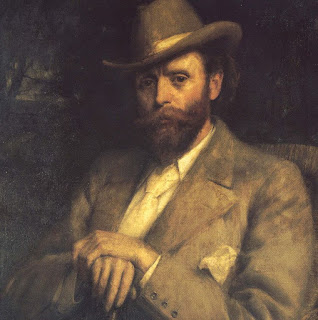 |
Ralph Mottram in WW1 – standing back row left.
|
I first came across Ralph Mottram in Catherine W. Reilly’s amazing book “English Poetry of the First World War: A Bibliography”, in which he features on p. 231 without reference to his WW1 military career. And then I found him again recently, when I read “In the Trenches: Those who were there” by Rabel Bilton (Pen & Sword Military, 2016), which features a very frank description of Ralph’s experiences in the trenches of the Western Front during the First World War.
Ralph Hale Mottram was born on 30th October 1883 in the living accommodation of the eighteenth-century building that housed Gurney's Bank in Norwich. His parents were James Mottram, chief clerk of Gurney’s Bank, and his wife, Fanny Ann Mottram, nee Hale. Ralph was their eldest son. Ralph had an idyllic childhood growing up in 'Bank House' - a Georgian mansion on Bank Plain - which was later Barclay's Bank and is now a youth centre. The Mottrams were non-conformist and worshipped at the Octagon Chapel, Norwich in Colegate.
Ralph became a bank clerk in Norwich before the First World War, during which he served as a Lieutenant in the Norfolk Regiment on the Western Front. In 1918, he married Margaret Allan and the couple had two sons and a daughter. In 1924, Ralph was awarded the Hawthornden Prize for his trilogy “The Spanish Farm”.
During the Second World War, Ralph and his family lived in Poplar Avenue, Norwich. He became friendly with the American poet Hyman Plutzik who was stationed at the Shipdham Airbase. In his role as Education Officer for the USAAF, Plutzik invited Ralph to lecture at the airfield and then, later in the evening, drove him and his wife back to Norwich. Plutzik's poem “On the Airfield at Shipdham” is dedicated to Ralph Mottram.
In 1953, Ralph became Lord Mayor of Norwich. Among his literary works was a biography of his friend and fellow novelist John Galsworthy. In 1966, Ralph received an Honorary Doctor of Letters from the newly-established University of East Anglia. Ralph died on 16th April 1971 and was buried in the Mottram family plot at the Rosary Cemetery, which was the first non-denominational cemetery in England.
There is a memorial to Ralph on St. James' Hill on Mousehold Heath - which overlooks the City of Norwich. He once claimed that Mousehold Heath was 'the property of those who have the privilege of Norwich birth'. Unfortunately, the memorial was badly damaged by metal thieves in 2011.
Ralph’s WW1 poetry collection was “Poems new and old” (Duckworth, London, 1930) and he had poems published in two WW1 Anthologies.
“The Flower of Battle” by Ralph Hale Mottram
The summer twilight gently yields
To star-sown luminous night, and close
The flowers in these Flemish Fields
Are folded, still the leaves repose;
But, as the colour leaves the sky,
And darkness wraps a suffering earth,
Clamouring, climbing endlessly
Another blossom springs to birth:
The Flower of Battle, down the wide
Horizon mantles, tendrils spread,
Its far-hung petals brilliant dyed,
Yellow, and blinding white, and red.
Fed with our bodies at its root,
Fed with our hearts its living flame,
It sways in wonder absolute,
And Flower of Battle is its name. . . .
Men will gaze, awestruck, men will strive
To reach its glowing heart . . . and some
May turn away while yet alive,
But few from out its shade may come !
From “The Mercury Book of Verse” (Macmillan & Co. Ltd, London, 1931) which consists of
poems published in “The London Mercury”, 1919-1930. “The London Mercury” was a major monthly literary journal published from 1919 to 1939. J. C. Squire was Editor from November 1919 to September 1934 and Rolfe Arnold Scott-James was Editor from October 1934 to April 1939.
Fiore dei Liberi was a weapons-master from Italy who was active in the 14th and early 15th century. After fifty years of training Italy's elite, he put his art to paper and created the “Flower of Battle”, which covers unarmed combat, the use of the dagger, sword, spear, axe as well as fighting in armor, without and on horseback as well as other odds and ends.
Sources: Find my Past, Free BMD, Catherine W. Reilly “English Poetry of the First World War: A Bibliography” (St. Martin’s Press, New York, 1978) p. 231 and https://www.literarynorfolk.co.uk/Norwich/ralph_hale_mottram.htm
https://archive.org/stream/mercurybookofver031179mbp/mercurybookofver031179mbp_djvu.txt
Photo: Ralph Mottram in WW1 – standing back row left.







